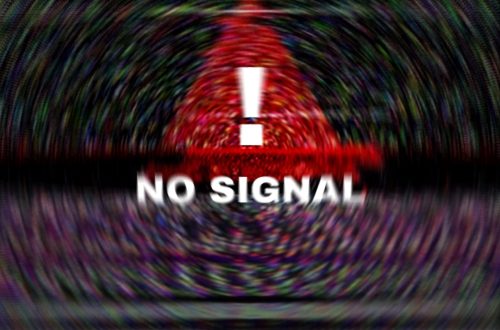Sometimes we don’t understand how deep or shallow an idea is in our mind. An idea is a thought motivated by a feeling. We often try to pursue or avoid; these are the two actions we take driven by our emotions, translated into ideas (thoughts), like an internal language.
Sometimes we don’t know how to carry it out or we don’t have a clear idea that has been surrounding our mind for a long time. This is because there are ideas that develop in our unconsciousness and others in our consciousness. This kind of ideas is like “UFOs” in our minds.
These “UFOs” ideas, when we realize they exist but don’t know how to put them into action, develop in our consciousness. The ideas we don’t understand develop in our unconsciousness. All the ideas that develop in our minds are influenced by multiple factors and impact our decisions, thus leading us to action.
Mental UFOs:
As discussed in the introduction, these “UFOs” are omnidirectional ideas, represented as images or concepts stored on a hard drive. That “hard drive” is our mind. We need to be clear that the functioning of our mind is similar to that of a computer. Unlike a computer, which is programmed by data, the mind must be programmed every day through habits instead of data.
I will open a rhetorical discussion at this point:
How can these “UFOs” be formed through culture, education, and personal experiences?
Let’s start with the fact of understanding what UFOs are. Their meaning indicates that they are “unidentified flying objects”. To be clearer, they are objects identified as extraterrestrial, but we don’t want to accept what they are.
This is exactly what happens with these ideas in our consciousness and unconsciousness that we simply don’t understand, or we understand them but often don’t want to confront. These are influenced by the variation that exists among the different cultures of the world and how they handle it. Then we have the issue of education, which greatly influences the boundaries in our mind. These are the limits to creating thoughts. Finally, we have the most important influence, which is personal experiences. I consider this to be the life source in our mind. It’s like water for the health of the body. Without the “good” or “bad” situations that each individual experiences, it would be impossible to create within the mind the discernment between “how” and “how much” I can achieve or escape from something that benefits or harms me. These patterns we will repeat to “avoid” or “welcome” any situation in the decisions we make going forward. I must emphasize that this last influence contributing to the formation of these “UFOs” will be judged as “good” or “bad” depending on the first two influences: “culture” and “education”.
So, with that said, the foundation of this discussion is what we will do with these “UFOs” in our minds. Once this foundation is defined, you will start to see the correlation between consciousness and unconsciousness.
Influence on Decision Making:
The three factors mentioned earlier influence the generation of ideas, as this formation judges the individual definition of positive or negative. This allows the generation of emotions that motivate ideas to be executed. Everything is interrelated.
Let me give you an example: within Indian culture, families arrange marriages for their children during their childhood. In this culture, this practice is considered appropriate. On the contrary, in Western culture, this action is criticized.
This individual definition varies among cultures, education, and personal experiences.
Connection with Consciousness and the Unconscious:
In our mind, there are two main levels of processing: the conscious and the unconscious. The conscious level is where we are aware of our thoughts, decisions, and actions. This is where we actively process information and make decisions based on our current understanding. On the other hand, the unconscious level is where memories are stored that are not in the center of our conscious attention. These elements can influence our decisions and behaviors without us realizing.
Our “UFOs” (mental representations), that is, our ideas and perceptions of situations, concepts, and people, can form on both levels. Some ideas develop consciously, while others can arise unconsciously, influenced by our past experiences, emotions, and ingrained beliefs. These representations can be positive or negative and can affect how we perceive and react to the world around us.
The conscious ideas that we have developed through logical thinking and reflection can guide our rational choices. However, unconscious representations also play a significant role. The biases and deeply ingrained beliefs stored in the unconscious level can subtly and often unconsciously influence our actions.
To explore the correlation between conscious and unconscious levels, it is essential to delve into where thoughts and beliefs reside in the unconscious level of the individual. This requires an individual process of self-exploration and self-reflection. In this, we cannot receive help; each individual must work on it independently if they want to understand themselves, thereby achieving self-control in their mind regarding what they feel and how to confront it.
Analogy with UFOs:
Imagine looking up at the sky on a clear night and observing a moving object that seems to defy all logic and explanation. Even though you can’t identify it immediately, you know it’s something extraordinary, something that doesn’t fit with what you know. Similarly, our minds often harbor ideas that are equally mysterious and enigmatic in their nature. These ideas, like the “UFOs” of our mind, can be difficult to understand and sometimes seem to challenge our own perceptions.
The ideas that emerge in our minds often manifest similarly to “UFOs” in the night sky. They can appear without warning, without a clear identification of their origin. We might ask ourselves: where does this idea come from? How did it form in my mind? Just as “UFOs” intrigue us due to their unknown origin, these ideas challenge us to explore their source and meaning.
These ideas are of an elusive nature, much like “UFOs” that seem to fade on the horizon before we can fully comprehend their true nature. Some ideas in our minds can also be elusive. They may dissipate before we can analyze them thoroughly, leaving us with a sense of curiosity and wonder. These mysterious ideas can be unexpected, emerging at times when we least anticipate them and triggering a process of mental exploration.
Let’s Reflect!
By exploring the analogy of “UFOs” in our minds, we realize the richness and depth of our ideas and thoughts. Just as astronomers and scientists investigate the origin of unidentified flying objects in the sky, we can also embark on a journey of reflection and discovery to unravel the mystery of our own ideas. This exploration can lead us to better understand our internal psychology and appreciate the complexity of our minds. Much like “UFOs” can be influenced by unknown forces and incomprehensible factors, our ideas can also be shaped by various influences. Some ideas may result from our past experiences, while others may be influenced by culture, education, and daily interactions. As observers of our own mental processes, we often only see the tip of the iceberg of what’s truly at play.
In conclusion, it’s our duty, first and foremost, to learn to accept ourselves and not seek acceptance from others. Self-exploration and self-reflection will introduce us to who we truly are, without allowing anyone else to influence our ideas or our perception of who we are and how we face the world. The ideas in our minds are like “UFOs” challenging our understanding and inviting us to explore the boundaries of our consciousness. Just as we seek answers in the nighttime sky, we can also seek to understand the forces that shape our ideas and perceptions. As we unravel the mysteries of our minds, we embark on a journey of self-discovery that enables us to better understand who we are and how we interact with the world around us.
Bye now!




